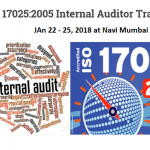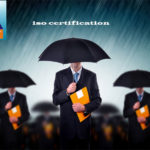What is ISO 14001?
What is ISO 14001?
The International Organization of Standardization, (ISO) is a worldwide organization that develops many different kinds of Standards – not just quality standards. ISO 14000 is a series of documents relating to the implementation of an Environmental Management System (EMS).
ISO 14001 is the document which defines the requirements for the EMS and provides guidance for its use. ISO 14001 specifies the requirements of an environmental management system (EMS) for small to large organizations. An EMS is a systemic approach to handling environmental issues within an organization. The ISO 14001 standard is based on the Plan-Check-Do-Review-Improve cycle of ISO 9001 – even though it is not a Quality Management System.
To learn more we recommend this free tutorial “The Basics of ISO 14001?”
How does ISO 14001 relate to ISO 9001?
ISO 9001 is a Quality Management System (QMS) which similarly gives organizations a systematic approach for meeting customer objectives (providing consistent quality). An important difference between ISO 14001 and other ISO standard is that it describes the requirements for an environmental management system that can be used for the registration of the management system and / or for the self-declaration of compliance by an organization.
What is an Environmental Management System (EMS)?
An EMS gives an organization a systematic approach for managing their environmental impact (the consequences of their operations). The objective is for ISO 14001 to control environmental impact of the organization’s actions and continually increase the environmental performance as measured against objectives.
Why do companies want to pursue ISO 14001?
Fundamentally, it is everyone’s job to protect the environment by preventing pollution and continually improving the air we breathe, the water we drink, and the earth we inhabit. But there are several specific reasons for implementing an EMS:
It’s the right thing to do
Organizations are becoming increasingly concerned in achieving sound environmental performance to demonstrate that you are a “Good Corporate Citizenâ€.
• Improved environmental performance—protect the environment
• Improved customer trust and satisfaction by conforming to ISO 14001 International Standards
• Improved public image and community relations—recognized for achieving certification
• Fewer accidents due to properly handled dangers
Reduced Liability
• Improved compliance with environmental regulations—Federal (EPA), State (State environmental agency), and Local (permits)
• Increased employee involvement—implementing ISO 14001 is perceived as “the right thing to doâ€
• Reduced liability and risk exposure by ensuring an environmentally safe system
Market Pressure
Many organizations decide to Implement ISO 14001 and obtain registration because it assures customers, shareholders, suppliers, regulators and the community at large that the company has a good Environmental Management System (EMS) in place. An organization with an effective EMS will typically meet customer expectations and comply with regulations better than an organization that does not have an effective EMS. Many organizations require their suppliers to have ISO 14001 Registration
• Gain competitive advantage—use environmental improvements to enhance marketing efforts
Cost Savings:
Implementing ISO 14001 often delivers cost savings:
• Reduced costs by avoiding excessive waste and associated costs
• Reduced materials and energy usage
• Increased efficiency by improving and standardizing environmental related processes
Is it right for our organization?
We’ve now given you a brief overview of ISO 14001, the Environmental Standard rooted in ISO 9001 Quality Standard. Only you can decide if it is right for your organization, but it’s certainly the right thing to do for our planet. If you’d like to learn more contact us info@lakshy.com or visit www.lakshy.com or call our 24 hours custome care +91 9821780035 to get your company ISO 14001 certified:








